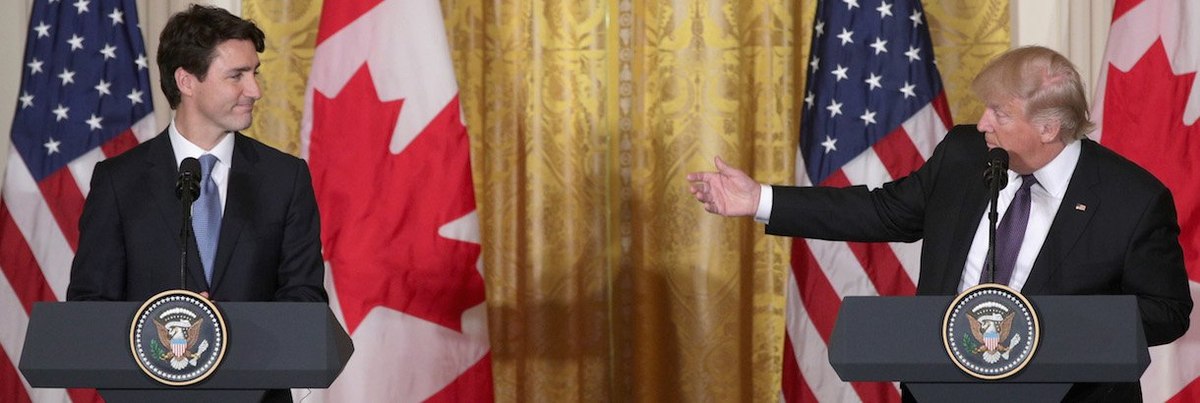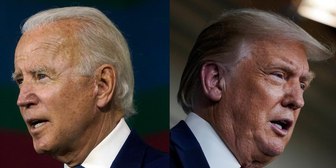48% of Americans consider Canada an ally, but only 20% think Trump does
Americans continue to view Canada as America’s close friend and ally – and as a fair trading partner – even after the President Trump’s post G-7 summit criticism of that country and its Prime Minister Justin Trudeau. The latest Economist/YouGov Poll also shows little public willingness to re-admit Russia into the economic group that expelled that country after its 2014 annexation of Crimea, despite President Trump’s suggestion that Russia be readmitted.
This week’s survey began on Sunday, after the President tweeted his criticisms of Trudeau and rejected the joint statement the seven countries had accepted. It was completed before most of America awoke to the results of the summit between the US President and Kim Jung-un the North Korean leader.
Americans heard the criticism the President had of Canada but were not affected. The vast majority sees Canada as an ally or friend, just as they did last week. But the number saying President Trump sees Canada that way has slipped.
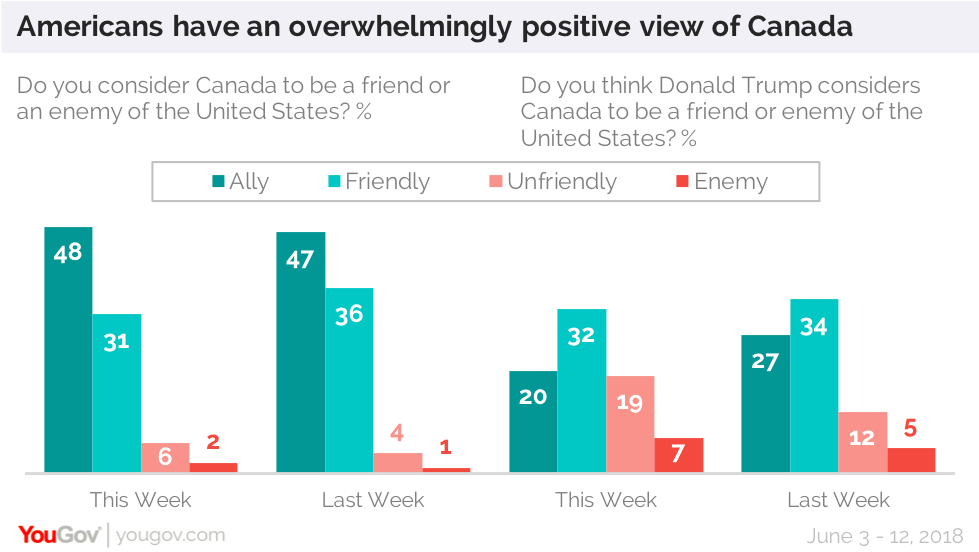
There isn’t much difference this week in the perceptions of Republicans and Democrats when it comes to their own opinion of Canada, though Democrats are more likely than Republicans to put Canada in the “ally” category, while Republicans are more likely than Democrats to describe Canada as a “friend.” But that was true last week as well. Both weeks, Republicans were more likely than Democrats to believe the President holds a positive view of Canada.
Americans take the G-7 side on the specific issues: they believe the President should have signed the G-7 communique that he originally accepted. Both Republicans and Democrats agree with this.
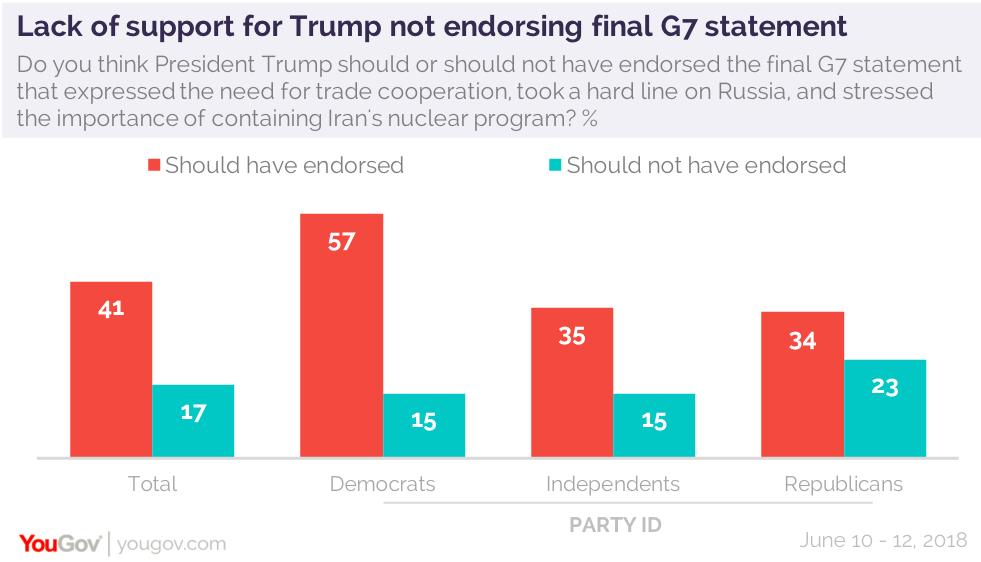
Americans have few problems with Canada when it comes to trade: 41% see Canada as having a fair trade policy with the US, while 24% do not. One in three Republicans think Canada’s trade practices are fair, though more Republicans (40%) describe say the policies are unfair. That same pattern exists when it comes to evaluating the trading policy of the European Union towards the United States. More think the EU has a fair trade policy towards the US than say it has an unfair trade policy, but by two to one, Republicans agree with President Trump and say the EU is unfair.
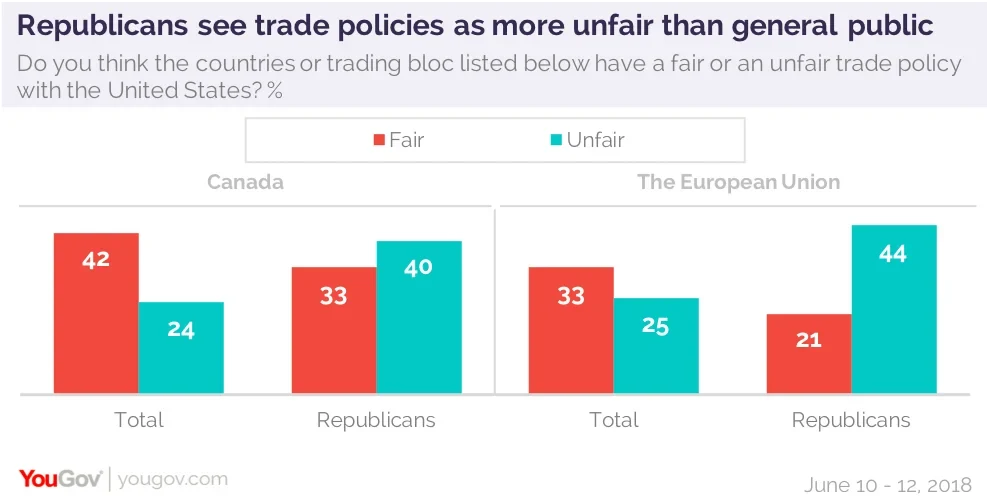
The public narrowly disapproves of how the President has been handling foreign trade: 37% approve, 44% disapprove. That’s partly because the public, both Republican and Democrat, likes free trade. By two to one Americans want more free trade agreements. By the same margin, those with an opinion believe tariffs hurt the US economy. However, Republicans agree with the President when it comes to tariffs, and are more likely to think tariffs help the US economy.
Despite partisan differences on tariffs and trade, Americans are not happy about the possibility of a trade war. A majority believes a trade war would hurt the American economy, while just 18% believe it will help. Republicans maintain their optimism: by 37% to 28%, they say a trade was would help the US economy.
Americans also take the G-7’s position, not the President’s, when it comes to whether or not to re-admit Russia to the group. By two to one, the public says “no.” Republicans would re-admit Russia, 34% to 19%, but nearly half of Republicans take no position on that question. Republicans are more likely than Democrats or independents to abstain on this question.
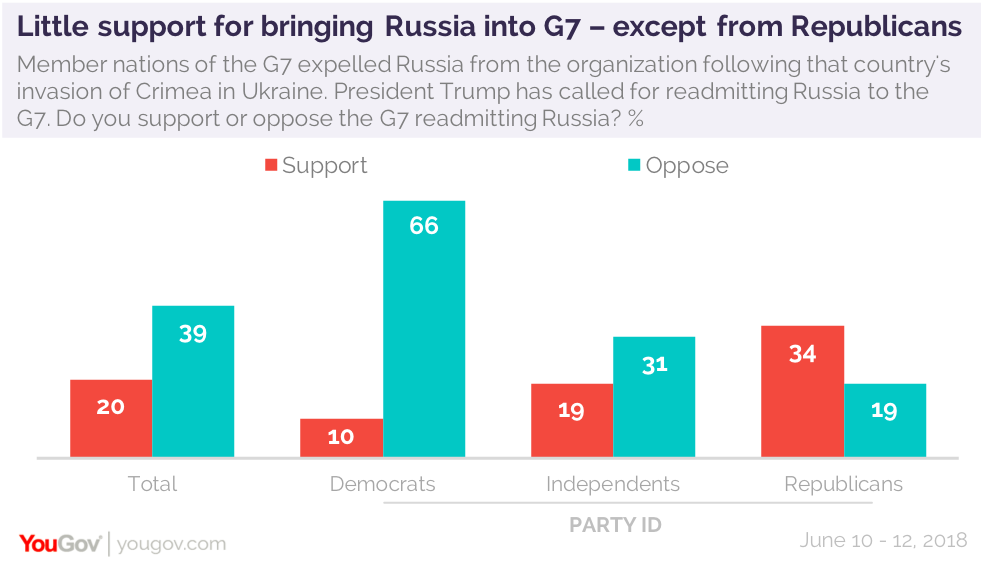
Just as more Americans like Canada than think the President does, the public takes a more negative view of Russia than the one they believe the President has. Two-thirds overall (including 60% of Republicans) believe Russia is unfriendly or an enemy; but as many think the President regards Russia as a friendly country as believe he sees it as an unfriendly one.

Republican feelings about the President are somewhat different. A third of Republicans think the President views Russia as an ally or a friendly country; more, about half, say he views the country as unfriendly or an enemy of the United States.
Read more topline and tables results here.
Photo: Getty
